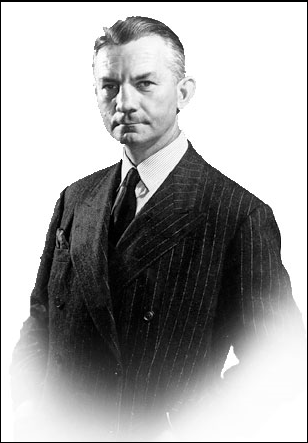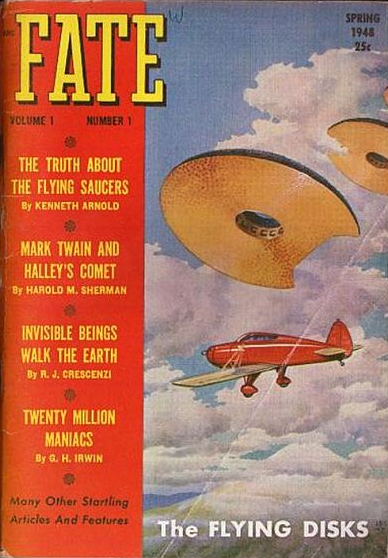Editor’s note: Beacon was created in 1913 from Matteawan and Fishkill Landing.
150 Years Ago (July 1872)
Eugene Schmidtlein was arrested in Fishkill Landing on charges that he stole gold and silver watches from a jeweler where he had once worked. According to jailers, Schmidtlein wrote his father in Germany, saying he needed money because he was in trouble for shooting a man, which he calculated would generate more sympathy than thievery. It did, eliciting a draft for $400 in gold.
125 Years Ago (July 1897)
Although she was 98 years old, Mrs. Horace Riggs of Matteawan walked to the store each day to buy meat and bread, and to the Baptist Church every Sunday.
 Authorities investigated the death of Selma Larsen, a Swedish woman who became ill on the train to New York City and died mysteriously at the Matteawan hospital. She had been working as a parlor maid for the Dinsmore family in Staatsburg, who said she planned to visit her sister in Manhattan. Suspicions arose that she had been poisoned, perhaps by a spurned lover (a butler had stolen two bottles of wine for her to take on the trip, and paid for her ticket). But following an autopsy, a doctor concluded that she had died from a stomach ulcer created, he surmised, when she mistakenly took a tablet used to kill insects instead of a potash pill for coughs. A coroner’s jury ruled out intentional poisoning.
Authorities investigated the death of Selma Larsen, a Swedish woman who became ill on the train to New York City and died mysteriously at the Matteawan hospital. She had been working as a parlor maid for the Dinsmore family in Staatsburg, who said she planned to visit her sister in Manhattan. Suspicions arose that she had been poisoned, perhaps by a spurned lover (a butler had stolen two bottles of wine for her to take on the trip, and paid for her ticket). But following an autopsy, a doctor concluded that she had died from a stomach ulcer created, he surmised, when she mistakenly took a tablet used to kill insects instead of a potash pill for coughs. A coroner’s jury ruled out intentional poisoning.
Fannie Waring Korn, 43, who had escaped two years earlier from the State Hospital for Insane Criminals at Matteawan, was recognized and arrested by a detective on West 47th Street in Manhattan, where she had opened a boarding house. Korn had been sent to the facility in 1893 when a jury found she had been insane when she killed her 6-year-old daughter. She was returned to Matteawan, but her lawyer argued that his client was no longer insane; a judge agreed and ordered her released.
Howard Rees, 35, president of the Phoenix Gas Co. of Matteawan, was detained after his father, the vice president, said his son was on the verge of insanity through liquor. After being sent to a sanitarium in Orange County, Rees escaped through a bathroom window. He reached West Point at daybreak, where he borrowed 15 cents to be rowed across the river to Garrison, and another 25 cents to take the train to his lawyer’s home in Matteawan. Rees agreed to admit himself to the Hudson River State Hospital while the lawyer argued that the father’s concern was a ploy to take control of the firm. Nevertheless, a judge ordered Rees to remain at the state hospital for a month for evaluation.
The Day the Dams Burst
In the early morning hours of Wednesday, July 14, 1897, the 10-year-old Melzingah dams, which supplied Fishkill Landing and Matteawan with drinking water, failed and sent a deadly torrent into a settlement at Frank Timoney’s brickyard.
A witness said the water came in two waves. After the first, he came outside the boarding house where he was living with his wife and five children and found the water was 4 feet deep and had carried away the stoop. The second, a 15-foot-high wave that carried with it uprooted trees and the debris from two bridges, tore the frame house from its foundation and destroyed it. Two adults and four children were killed, along with a Hungarian laborer in another building. One victim, Mrs. John Conroy, had been saved by her future husband during the Johnstown flood in 1889 in Pennsylvania that killed 2,200 people. John Conroy survived Melzingah but could not save her a second time, or their two children.
A subsequent investigation by the New York Evening Journal said that, instead of masonry, the 28-foot-high dams had been constructed of cobblestone and silt and were only 10 inches thick at the top. Authorities accused the Fishkill & Matteawan Water Co., based on Wall Street, of building on the cheap, but the firm was unrepentant. Its president said he only knew what he read in the papers, and the on-site superintendent said the disaster had been “grossly exaggerated.”
In later testimony, the superintendent said he could not account for the overflow unless it had to do with the three days of heavy rain that preceded the disaster. He also revealed the firm had a watchman on duty but he was not expected to check the structures every day.
Timoney, whose yard employed 200 men and produced 24 million bricks annually, sued for damages, as did relatives of the victims. A coroner’s jury found the water company “in a large measure responsible” but did not recommend criminal charges.
An inquest by the district attorney concluded the dams were, in fact, solidly built but had insufficient spillways, which allowed water to run over and eat away at the stone following heavy rains. At the inquest, a civil engineer noted that the spillway for the upper reservoir had been constructed 4 feet lower than the crest but later raised, apparently to increase capacity. He said water had been cascading over the upper dam for at least six hours before it gave way.
Joseph Moshier, 8, of Byrnesville, near Fishkill Landing, was trying to catch a ride on a freight train at Dennings Point when he fell under the wheels and lost his right arm near the shoulder. He was taken to the General Hospital, and about 30 minutes later his sister arrived with the arm.
According to the New York Sun, Jacob Startiski, an anarchist, spoke on a soap box on Main Street in Matteawan, calling on passersby to shoot down the village capitalists. “Your hat shops are full of hats and yet we are bareheaded; your shoe factories are full of shoes and yet we are barefooted,” he intoned. After a riot ensued in which a man was stabbed, Startiski was jailed for disorderly conduct and fined $25. [Tom Hickey, a Socialist from Texas and founder of The Rebel who said he was the person The Sun identified as “Startiski,” dismissed the report as fabricated.]
According to a brief report in The New York Times, Mrs. John Higgs of Glenham delivered triplets that each weighed 10 pounds, including one with a third eye just above the bridge of its nose.
100 Years Ago (July 1922)
The Dutchess County sheriff was searching for a craps player — thought to be a professional from Rockland County — who shot a woman dead during a brickyard game near Beacon after she “crossed his bet.”
The federal Veterans’ Bureau was negotiating to purchase Summerfield, a 208-acre estate with a 20-room mansion about 2½ miles from Beacon, to construct a $1 million hospital for up to 1,500 patients.
Albert Belle Isle, whose brick company had stockpiled 115 tons of coal at Long Dock, said he would defy an order from the city to preserve it because of a shortage at the Southern Dutchess Gas & Electric Co.
Mrs. Cornelius Kelisher of Beacon said she owned a lotus twig with a tag attached that read: “From the tree under which General Lee gave his sword to General Grant near the battlefield and where the last battle was fought, Appomattox, Va., April 9, 1865.”
Alexander McKim, a state inspector, said the hollow spots in the Mount Beacon reservoir dam he had documented 10 years earlier had not been corrected. An engineer hired by the state said the city should construct a new dam at least 1,400 feet long and 20 feet high on Fishkill Creek for peak loads.
Peter Tomasilli of Beacon was indicted for blackmail after he wrote his parents threatening to kill them unless they withdrew a charge that he had attacked his father with an ax handle. Soon after, a guard at the Dutchess County Jail found eight hacksaw blades concealed in Tomasilli’s mattress. They had been smuggled in by the wife of inmate John Muscullo, who was being held on charges that he stabbed a man during the greased-pole fracas at the celebration of Our Lady of Mount Carmel in Poughkeepsie.
A report presented to the City Council noted that samples of milk distributed by two of four dealers in the city had more bacteria than the legal limit, including one with 8.5 million bacteria, or 8.3 million more than allowed. The mayor recommended a law that required pasteurization.
After the Beacon Taxpayers’ Association sued the city because it had rented a 5-ton truck from a supplier outside the city, Public Safety Commissioner John Cronin dismissed the group as a “coterie of disgruntled politicians, a sorehead newspaper editor, politicians and near-officeholders.”
75 Years Ago (July 1947)
James Forrestal, a Beacon native, was appointed by President Truman as the first U.S. secretary of defense.
The Rev. John Lovejoy, 90, made 440 biscuits for a strawberry festival hosted by the Young People’s Society at the First Reformed Protestant Dutch Church of Fishkill, where he was the temporary minister. Lovejoy said he didn’t weigh or measure the ingredients but went by instinct. “My mind was never clearer,” the Beacon resident said. “I don’t live in the past. By having something to do, I live for the Sunday that’s coming.”
The owner and a bartender at George’s Tavern on the Beacon-Cold Spring road were charged with selling alcohol to two underage girls who were rooming at the tavern. The girls were arrested as wayward minors, and a 21-year-old Beacon man faced morals charges.

Although reports of flying saucers were widespread, there had been no reports in Beacon or Dutchess County, which Sheriff Fred Close attributed to the fact that “our citizens all get to bed early.”
Beacon High School announced it would have a football team for the first time in 35 years. The district hired a coach but said community members would have to raise the money for equipment and uniforms.
Construction began on Mount Beacon for the Hudson Valley’s first frequency modulation (FM) transmitter, which would power a new station, WHVA.
During a performance of High Tor at Van Wyck Hall in Fishkill, a Beacon woman in the front row was struck by a .22-caliber bullet fired by the sound effects man. David Pritchard, 19, of Washington, D.C., was charged with assault and held overnight in the Beacon jail. During the scene, three actors portraying bank robbers shot at ghosts of Dutch sailors on the Hudson River. Pritchard fired the round from the fly gallery above the stage into a washtub filled with sand, but the slug pierced 3 inches of flooring and hit Joan Clarke, 26. The next day, the theater manager said it was unclear how five bullets were loaded into the rifle instead of blanks but praised Clarke for her “admirable calm” after she was wounded — she rose from her seat and walked to the exit as the play continued. He said that evening’s performance would use recorded effects.

The Van Wyck Players opened a weeklong engagement of Springtime for Henry, starring Hollywood character actor Edward Everett Horton, at the Roosevelt Theater. The performers who traveled the summer circuit with Horton included Lilian Bond. The show was followed by a week of Arsenic and Old Lace starring Ruth McDevitt, who had played Aunt Abby more than 800 times on Broadway.
Police investigating the report of a prowler inside a South Avenue boarding house for women found the contents of its bathroom hamper on the roof.
50 Years Ago (July 1972)
A 17-year-old was arrested after someone called the Beacon Police Department about a burglary in progress — across the street from the station. An officer found the teenager halfway through a window at a doctor’s office at 436 Main St.
A squirrel climbed onto a transformer at the relay station on a Friday night and knocked out power on the west side of the city for 22 minutes.
In a report, a Dutchess County grand jury criticized the actions of four Beacon police officers and suggested they be disciplined or fired for “gross misconduct.” In response to an unruly 18-year-old burglary suspect they had arrested, the officers restrained and beat him. Asked to comment on the report, Mayor Robert Cahill said he had conducted his own investigation and saw no need for a grand jury. He later suspended each of the officers for two days without pay.
Two members of the Planning Board questioned a proposal to build 150 to 180 condos on a state-owned parcel near Asylum Road. One board member said the project would only “solve problems of overcrowding in Yonkers and White Plains” while straining the school district. However, other members noted a shortage of affordable housing for young married couples.
Beacon hosted seven teams for the 21st annual Upstate New York Babe Ruth baseball tournament. Saratoga defeated Beacon, 2-1, in the title game.
According to the dog warden, the city spent $2,000 in three months to kennel 93 strays. Only 13 were claimed, the rest destroyed. The commissioner of public safety recommended the warden respond only to complaints. “We don’t have the money to pick up all the stray dogs in the city,” he said.
In a contract dispute, the 196-member Beacon Teachers Association accused the school board of “outright neglect” for its failure to advance negotiations. The board president replied that, because of summer vacations, it was difficult to get all nine members together for discussions.
The Beacon-Fishkill Area Chamber of Commerce suggested that, to encourage shoppers, an urban development on Main Street between Teller and North Chestnut should not include parking meters. Mayor Cahill responded, “No way.”
25 Years Ago (July 1997)
Scott Robinson, 29, of Beacon, won the Tri-State Natural Body Building Competition at Tarrytown, capturing the Novice, Open and All-Around contests. He had been training at Body Werx in Beacon for a year.
According to reports filed with the federal government, IBM’s East Fishkill semiconductor plant released 186,188 pounds of chemicals into the environment in 1995. By comparison, Chemprene of Beacon, which made rubber products, released 65,444 pounds and the Tallix art foundry released 250 pounds. In Rochester, Eastman Kodak released 7.9 million pounds.
Mike Pomarico of Beacon had a seven-point lead in the Rookie Street Stock Championship series going into a race at the Orange County Fair Speedway. He had substituted the previous year for his brother, Don, when he had work conflicts, and won four of his first seven races.
To protest General Electric’s pollution of the Hudson River, the City Council cut ties with Coregis, an insurance firm owned by the company. The city moved its policies, and $161,000 in annual premiums, to Reliance.



